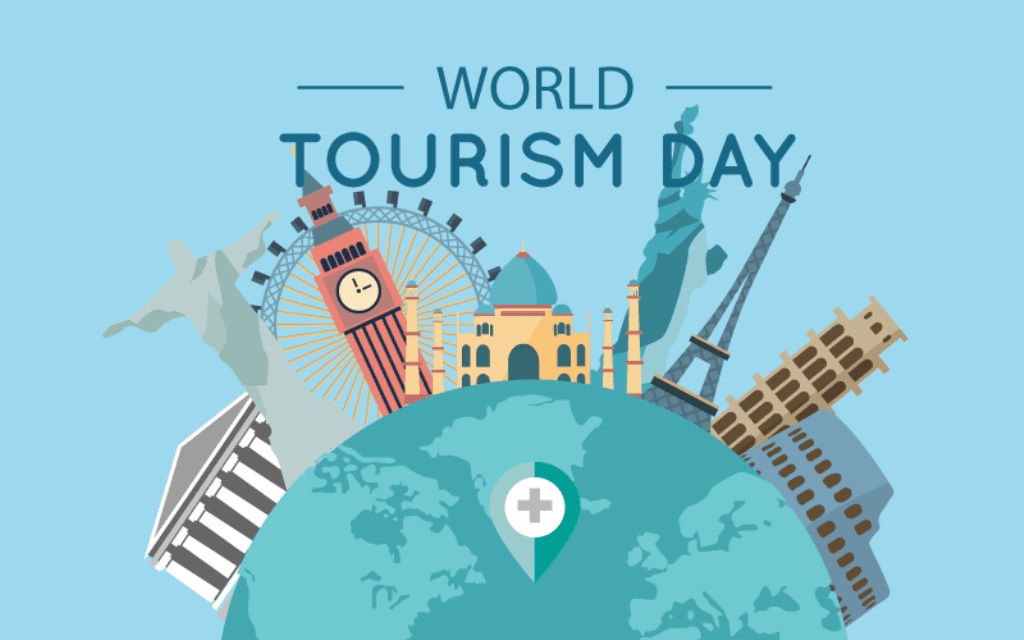Annual rehash that the tourism sector is humongous is a painful rhetoric exercise. The worth of the sector hovering around hundreds of billions of dollars, confirms that it is not just a cash cow, it is a massive oil well and gold mine combined. It is an enormous source of income for serious countries and governments. We would be 60 years in a few days and we haven’t seemed to ‘get it’.
Arrival headcounts on different country’s border in the last few decades suddenly jumped from a few million to billions, signifying the sharp climb in the finances that get continuously pumped into the sector. Again, the sector magnanimously provides one in every 10 jobs across the world to confirm its significance.
The theme for this year’s World Tourism Day: ‘Tourism and Rural Development’ provides a unique opportunity for Nigeria and other African countries to focus on rural communities and use tourism to develop them and reduce rural-urban migration, which is a huge challenge especially in Nigeria. We are blessed with lush vegetation, from the Mambilla plateau to Obudu, and many other pristine locations of scenic mountains, waters falls, hills, etc, that could have provided jobs for locals and develop the environment with roads, electricity, and aid springing up of local small business that would cater for the needs of the tourist. Tourists have to eat, stay in an accommodation, transport themselves, buy souvenirs, need a translator, just to expand to a few.
At 60, our water bodies are still wasting away, very few local cruise boats, zero for international like Royal Caribbean even with oceans. No mountain climbing or trekking expeditions when we have one of the highest peaks in Africa. How many international safari groups per year or bird-watching groups, or gorilla tracking come here? Our museums, monuments, and historical sites are in a state of moribund and not befitting for international visitors. The civil servants in our museums are bored, no welcoming smiling, no passion, nothing to suggest training of responding to the public in the right way. Do we have statistics analysing tourism arrivals, so that we will probably know where to concentrate? Many questions begging for answers.
Perhaps, we need to study how some nature suited destinations like Niagra Falls in Canada, Talum and Cancun in Mexico, Luxor in Egypt, Bali in Indonesia, Ibiza in Spain, Goa in India to mention a few. It is time to use our nature, as we cannot compete with building new cities and parks like Dubai, Saudi, or Qatar, or copy the popular nature of Paris and other western nations with their huge propaganda machines. Where we can play easily is our rural community with vast bio-diversity. The World Tourism Organisation is pointing in that direction because of data, we must be quick to latch on to this.
For many of these rural communities, tourism means opportunity. It provides jobs and economic empowerment for women and youth. Tourism gives rural communities the ability to protect and promote their natural surroundings, as well as their culture and heritage. In doing so, it allows tourists to enjoy unique experiences. So this 2020, World Tourism Day celebrates the sector’s importance for those communities that would otherwise be left behind.
Many of my colleagues in the tourism sector will be my witness. The locals in many of our destinations have nothing to show for the blessings nature has placed on them. The Obudu community is a sad example; from afar they see the luxury resort that has been placed on their land because of natural attractions, and that is as far as it goes. Our resorts and destinations should be filled with locals as guides, room service, bell boys, chefs, drivers, and even managing directors of tour companies and hotels. I experienced this on my Masai Mara trip in Kenya, and I have heard similar for the climbing of Kilimanjaro. Over a million jobs are possible with tourism within a year.
In the last four months, COVID-19 somehow helped us to focus on local tourism as no one could travel internationally and got the government and the people in the sector talking. We hope this would not be a flash in the pan. Lip service has always been the bane of Nigerian tourism, which is obvious as we do not have a minister for tourism. Not having a separate ministry for tourism, shows it is an afterthought, whereas it is a big business that needs huge human capital and financial resources to excel. Nigeria tourism is nowhere, and not close to South Africa, Kenya, Tanzania, The Gambia, and Ghana. Even in Africa tourism, we are a dwarf.
Just last week, my client, a woman with four young children, going to the beach resort I booked for them at Ibeju Lekki, spent over six hours in traffic between the airport and arriving at the resort. They arrived at midnight, driving on that dark road, tired and hungry, scared out of their wits, after their flight from Abuja was delayed from morning to afternoon. I could not sleep, neither could the husband who kept calling me, till they finally got into their rooms. Our infrastructure almost ruined the whole experience. This kind of experience de-markets our local tourism.
As we celebrate the world tourism day, I request the federal and state governments to work assiduously on security, Nigeria’s dented image and make access to the tourism sites convenient. They are the practical problems alongside making sure the sites are not bland.
We are a potential tourism super power, but we must act.
Hafees Keshinro is the founder of Butterfly Tourism Nigeria

 Join Daily Trust WhatsApp Community For Quick Access To News and Happenings Around You.
Join Daily Trust WhatsApp Community For Quick Access To News and Happenings Around You.


